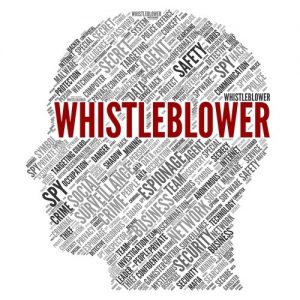The new regime for protecting whistleblowers

Whistleblowers play an important role in society as they expose fraud, corruption and other misconduct, keeping companies and individuals accountable for their actions. Whistleblower protections have been put in place to ensure that whistleblowers are safe to make disclosures and the process is transparent and fair.
However, for some time there have been concerns in the community that whistleblower protections do not go far enough in protecting those who come forward with information about wrong doing by companies or individuals.
Talk about new laws bolstering protection for whistleblowers seems to have been around for ages. Finally, the new regime is upon us. So, if you’re in-house counsel, in HR or a company director (even in a not-for-profit incorporated organisation) it would be wise to understand what this new regime may mean for your organisation. Civil and criminal penalties may apply upon a breach.
The new laws become effective on 1 July 2019. A detailed summary of the reforms to the corporate whistleblower protection regime is at the website of ASIC – www.asic.gov.au. The legislation introducing the reforms is the Treasury Laws Amendment (Enhancing Whistleblower Protections) Act 2019 (Cth). Despite the best efforts of the Commonwealth draft persons, the legislation is difficult for non-lawyers (even some lawyers) to digest, and therefore I anticipate many organisations will, if they haven’t already done so, seek legal advice on what the new regime means for them.
So, what are some of the big changes?
- Expanded definition of whistleblower. A whistleblower may include both current and former employees, officers and contractors, as well as spouses, dependants and other relatives.
- Compensation and other remedies. Whistleblowers now have much easier access to compensation and remedies if they suffer detriment (e.g. if they are terminated after making the disclosure), including the right to commence proceedings against the employer
- Whistleblower Policies. As of 1 January 2020, all public companies, large proprietary companies, and corporate trustees of registrable superannuation entities are required to have a Whistleblower policy. The information which must be included in that policy has been set out in detail in the reforms.
As a barrister specialising in commercial fraud and white-collar crime I am able to provide advice to organisations in relation to compliance under the new regime, either on a direct access basis or upon instructions received from solicitors.
